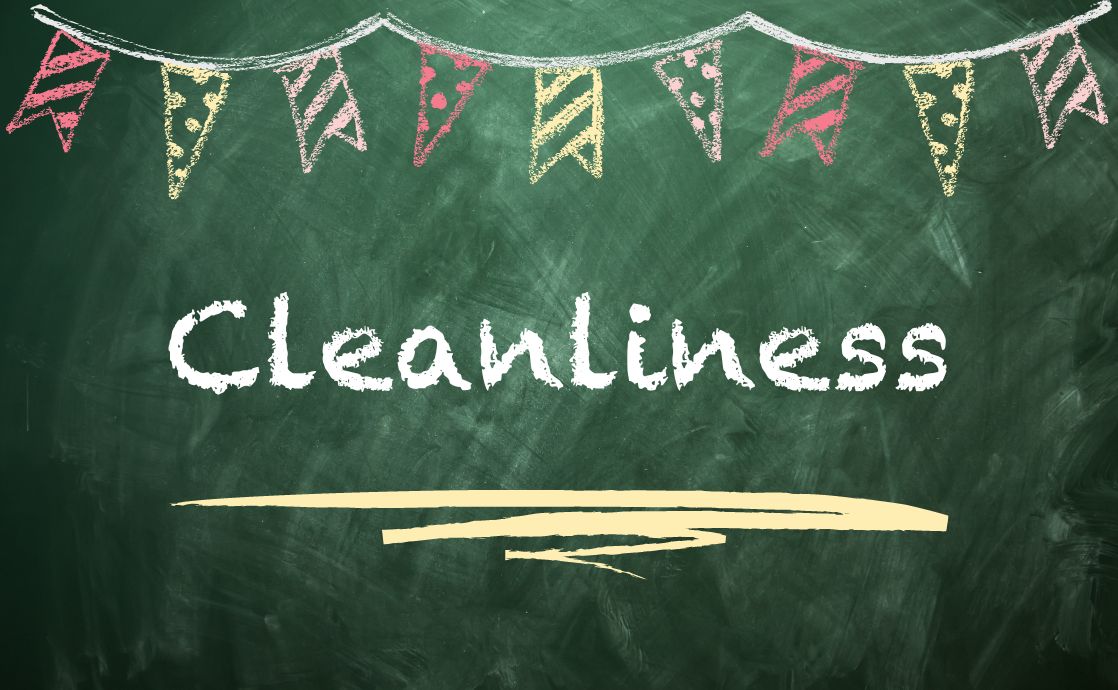In an age where the frenetic pace of life often overshadows the significance of deliberate contemplation, the Baha’i teachings present an invaluable paradigm for cultivating clean habits. The notion of virtues as a foundation for personal growth is not merely an abstract concept but a transformative approach that promises to realign one’s perspective on daily living. By exploring the intricate relationship between virtues and habits, one can unearth a pathway towards a more meaningful existence.
Understanding the Baha’i framework begins with the recognition that virtues are not just individual attributes; they are interconnected qualities that collectively enhance the human experience. This confluence of virtues, when conscientiously fostered, culminates in the establishment of clean habits—behaviors that are not only beneficial to the individual but also conducive to the community at large.
The first step in creating clean habits through Baha’i teachings involves an introspective journey. Self-reflection is imperative. One must contemplate their current habits, dissecting which of these serve a higher purpose and which detract from personal and spiritual growth. This process is akin to a gardener meticulously pruning a plant; by removing the dead weight of unproductive habits, one allows room for the flourishing of virtuous behaviors.
Next, the importance of intention cannot be overstated. The Baha’i teachings emphasize the power of intention as a driving force behind action. When one aspires to embody virtues such as kindness, honesty, and patience, intentionality becomes the bedrock for cultivating clean habits. By setting clear and deliberate intentions, individuals establish a moral compass that guides their decision-making processes, ultimately leading to a more virtuous life.
Moreover, the practice of virtue must be holistic. It is essential to recognize that virtues are not standalone attributes; they inherently interact with one another. For example, exercising patience might require an underpinning of humility, while displaying kindness may necessitate a foundation of empathy. This interconnectedness highlights the necessity for a comprehensive approach in habit formation—one cannot simply focus on kindness without also fostering associated virtues that support it.
The cultivation of clean habits can also be significantly enhanced through community engagement. The Baha’i teachings advocate for a collective approach to virtue development. By surrounding oneself with individuals who embody the virtues one aspires to, the process of habit formation becomes a communal undertaking. This shared commitment to virtue not only reinforces personal resolve but also creates a supportive environment that nurtures growth.
Additionally, one must embrace the notion of continuous learning and adaptation. The Baha’i faith champions the concept of knowledge as a tool for transformation. This perspective encourages individuals to remain open to new insights and experiences that may refine their understanding of virtues and enhance their capacity for clean habits. By engaging in lifelong learning, one cultivates resilience and adaptability—crucial traits in the pursuit of a virtuous and clean lifestyle.
Importantly, the Baha’i teachings also highlight the significance of service as a means of reinforcing virtuous habits. When individuals actively engage in service to others, they not only embody the virtues of altruism and generosity but also reinforce these behaviors as habitual. Serving others can be instrumental in revealing the interconnectedness of humanity, fostering a sense of responsibility that transcends the self, thus augmenting the journey toward clean habits.
Furthermore, a critical reflection on the influence of environment is essential. The Baha’i perspective recognizes that one’s surroundings significantly impact behavior. Therefore, curating a physical and social environment conducive to virtue expression can facilitate the formation of clean habits. This might entail decluttering one’s space to promote mental clarity or engaging with like-minded individuals who prioritize virtues. A supportive environment catalyzes the transition from intention to action, transforming aspirations into tangible habits.
As individuals navigate the complexities of life, the Baha’i teachings offer profound insights into the transformative power of virtues. By embracing this framework, one can experience a remarkable shift in perspective. Clean habits emerge not as burdens or chores but rather as expressions of a more elevated self, committed to growth and service. The promises embedded within this transformative journey are manifold; clear habits act as a bridge to a virtuous life, wherein each moment is infused with purpose.
Ultimately, the pursuit of clean habits through the lens of Baha’i teachings is a deeply personal yet universally applicable journey. It invites individuals to contemplate the intrinsic link between their actions and their impact on the broader community. Such a perspective ignites curiosity and inspires a commitment to embody virtues that define the essence of humanity. This undertaking is not merely about self-improvement; it represents a collective aspiration towards a nobler reality. Embracing the path of virtue thus becomes an enlightening odyssey—an invitation to cultivate clean habits that resonate through personal lives and reverberate throughout society.
